#IS THAT A NORSE MYTHOLOGY REFERENCE??
Explore tagged Tumblr posts
Text
Oh no.. THEY TURNED NARFI INTO A NARWHAL?!
The only reason I am even posting about this is because I saw it in my library and thought it was funny! For context Narfi/Narvi is Narve in Norwegian 🤭
Wait Vali is the jellyfish then?? 😭 I think I'll start a headcannon that they finally figured out how to shape-shift because of this!
By the way I doubt this book has any connections to myths.. 😔💔
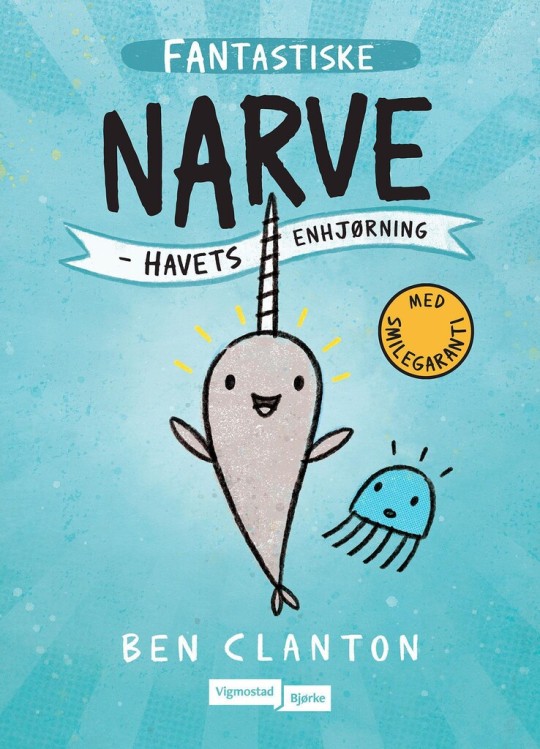
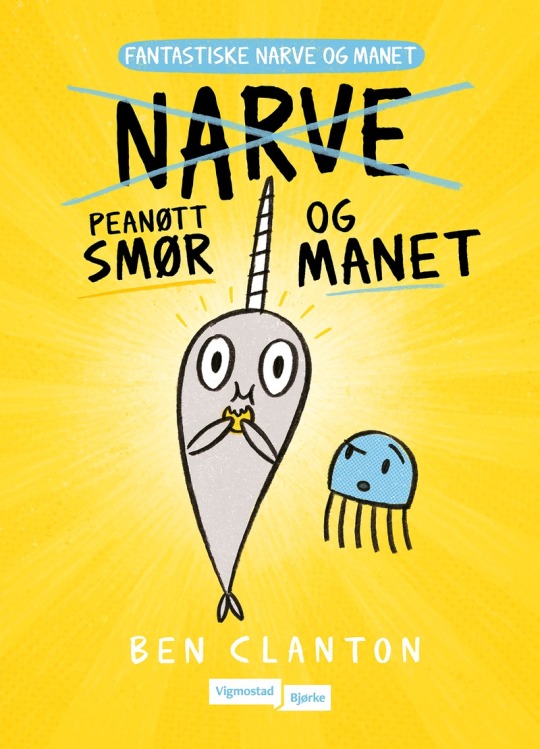
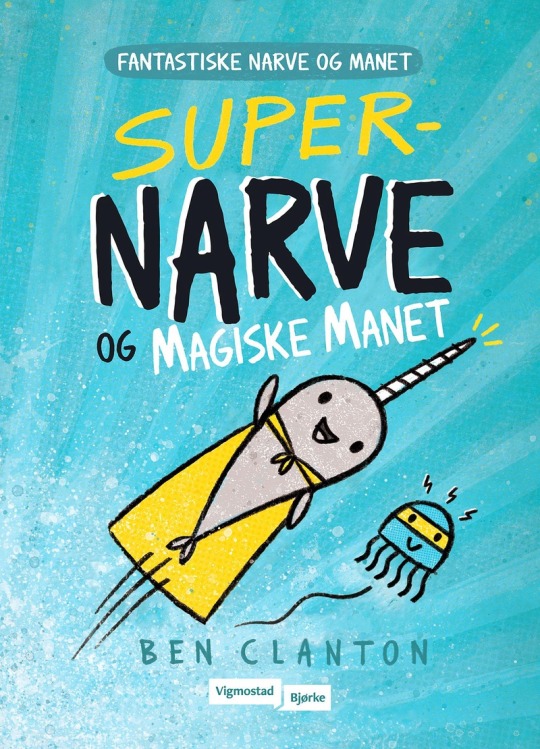
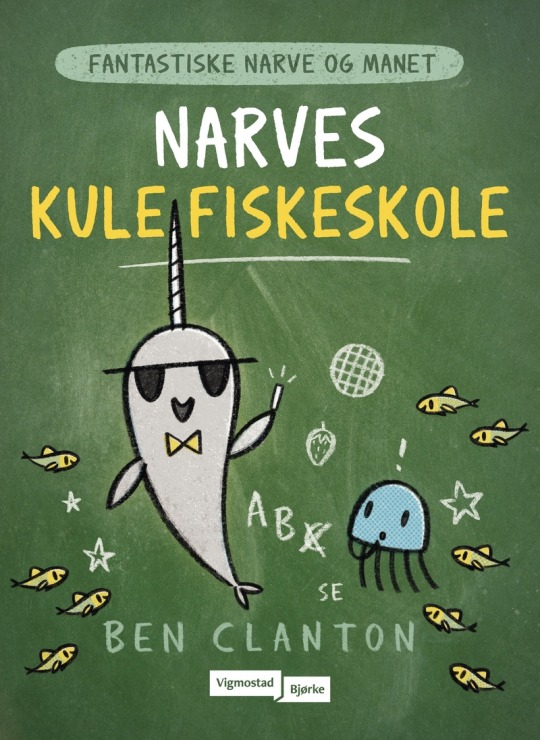
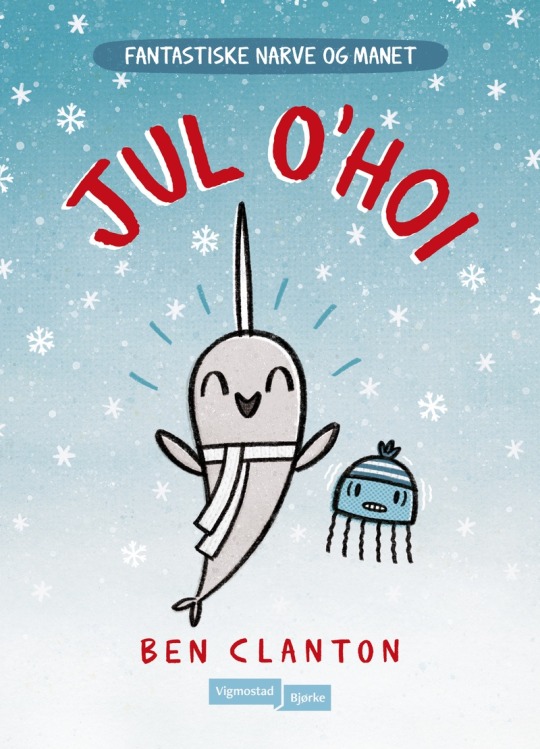
#narwhal and jelly book#IS THAT A NORSE MYTHOLOGY REFERENCE??#narfi lokisson#vali lokison#narfi and vali#vali and narvi#shitpost
5 notes
·
View notes
Text
In light of certain recent topics, I’ve been reminded of the 2017 book ‘Norse Mythology’ by Neil Gaiman. It was a nice telling of the more well-known Norse Myths, but there are LOTS of other options out there for people wanting to learn more about Norse Mythology—you don’t have to support that predator to learn about the gods.
Below is a list of some of the other resources that I’ve used. It’s not exhaustive by any measure—just what I’m familiar with and what comes to mind as I sit here at my desk at work. If anyone else has any additional recommendations, please add them to the list!
Norse Mythology for Smart People - norse-mythology.org

This was where I first started when I wanted to learn about Norse Mythology years ago—I literally just typed “Norse Mythology” into google and clicked the first result like a noob. But this site does a really good job of giving information on a wide range of topics within norse mythology as well as vikings in a general sense—everything from different gods, goddesses, creatures, places, and major stories. It’s a solid encyclopedic source that I would recommend to anyone wanting to get general information on the mythology.
“Norse Mythology: The Unofficial Guide” - https://open.spotify.com/show/7F0tD7bStFIDSVEbsnrxuI?si=8ce8f5ccf3a3417d

If podcasts are your jam, the best by far in my opinion is ‘Norse Mythology: The Unofficial Guide’. At the time of me writing this, there haven’t been any new episodes for 6 months, but there are 37 episodes that are about an hour each & range on a variety of topics from cosmology to specific deities to stories like Ragnarok or specific topics like runes. It does a fantastic job of explaining each topic in a way that is both thorough and accessible & honestly I can’t recommend it enough.
The ‘Northern Myths’ Podcast - https://open.spotify.com/show/7KtSJb5DTLSwmfj1BPYY5v?si=fcd6c297cdc1463d

If you want to go deeper into Old Norse texts like the Eddas or the Havamál, the ‘Northern Myths’ podcast is the place to go for a very deep dive/discussion on these texts. The episodes are long and sometimes get a little dry, but they do read these texts directly and then discuss each passage, so it’s a decent place to go for some deep discussion on some of the pillars of Old Norse texts.
Dr. Jackson Crawford - https://jacksonwcrawford.com/

Most people who get into Norse Mythology/History become familiar with Jackson Crawford pretty quick. He’s an expert specifically in linguistics and the Old Norse language—which includes runes—but he also has extensive knowledge on Old Norse & “Viking” history & culture. He’s previously taught at UCLA, UC Berkeley, and University of Colorado, and now has an extensive Youtube channel. He’s also been a consultant for projects like AC:Valhalla. If you have a question about Old Norse & would like to have a soft-spoken, no-nonsense cowboy in the wilds of Colorado explain it to you, this is your new home.
Again, this is by no means an exhaustive list, but it’s a good start. Please please feel free to reblog with any additional sources you’ve used so we can help new friends learn more!
#norse mythology#norse pantheon#norse history#Norse#vikings#reference#research#sources#jackson crawford#podcast#neil gaiman
757 notes
·
View notes
Text
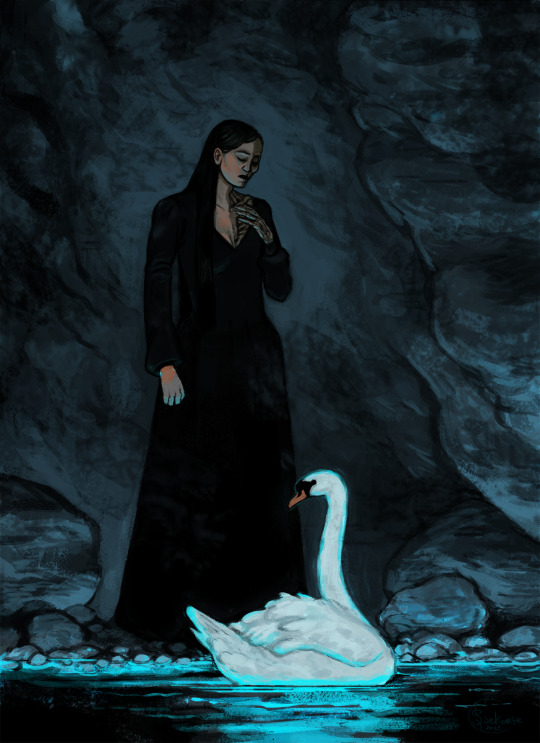

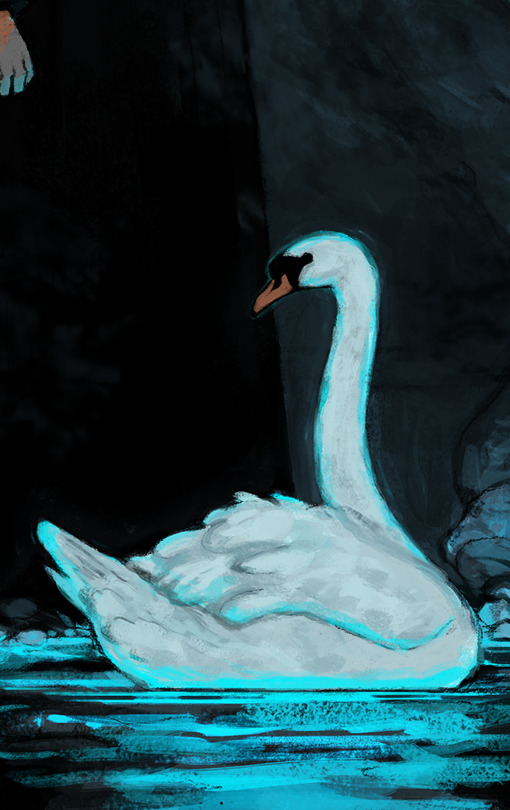
Hel in the underworld
(sharing some process pics under the cut)
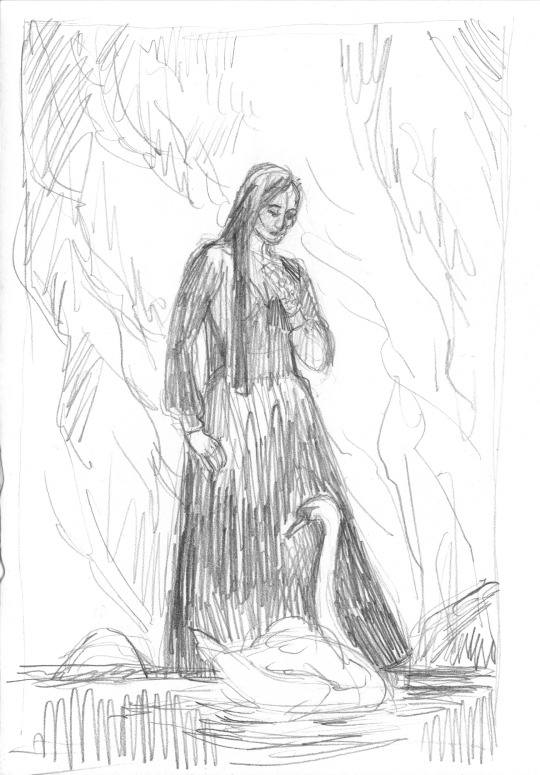
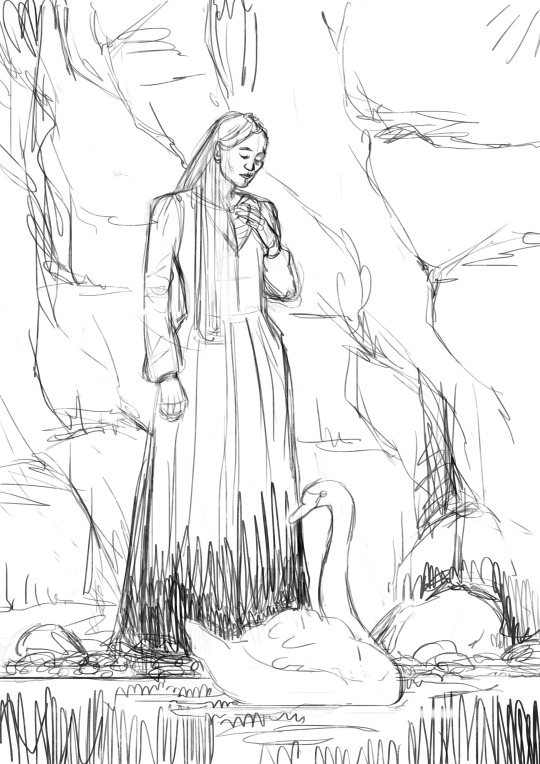
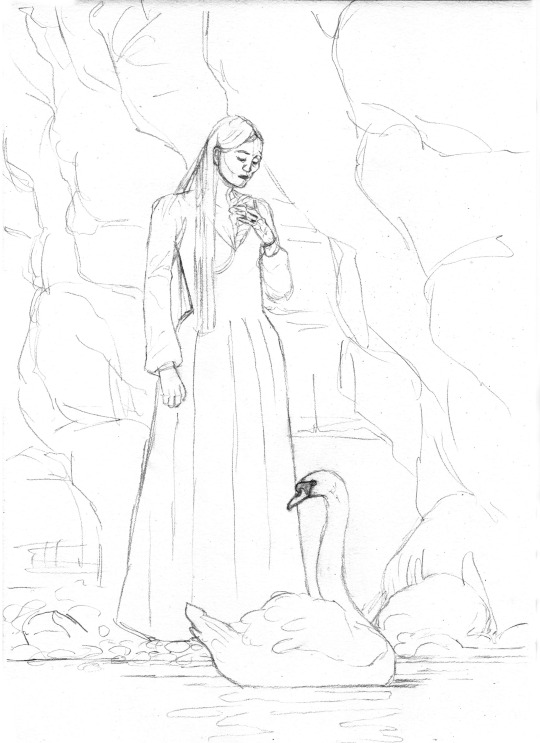
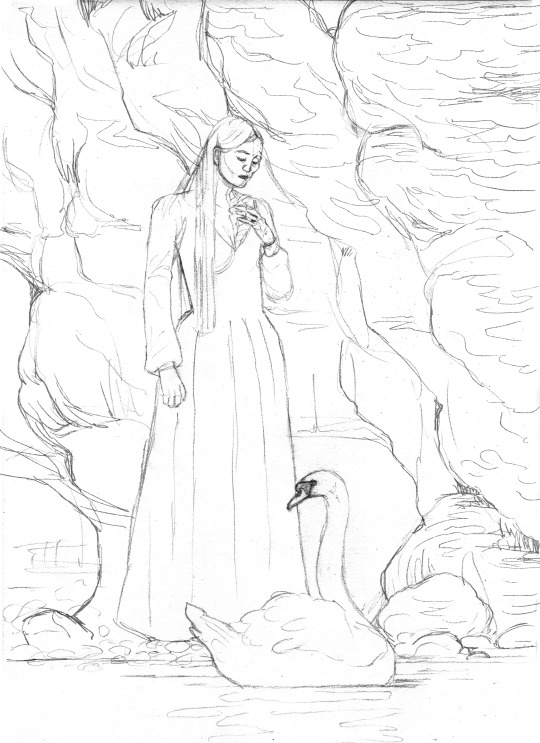
initial pencil sketch, digital sketch to fix proportions and composition, pencil lines, and scanned pencil lines with more detail added digitally
#norse gods#norse mythology#hel#underworld#swan#death#digital art#this one was a fucking pain#its been forever since i attempted to paint something from imagination without reference#and it took me the entire day yesterday to get the light i wanted :')))#i nearly binned it out of frustration halfway through#but i persevered
193 notes
·
View notes
Text
We (the viewers) know Bad’s physical and mental state is in decline, highlighted especially by the head wound that continues expanding to a worrying degree.
And now he’s fixated on building a puzzle that will deliberately drive someone into an absolute rage, to the point they’d murder him. He’s really really fixated on that point. Like, he has doubled down on the emphasis.
He’s been vaguely referencing how he needs to keep going as long as he can (paraphrased) for a while. Is this a case where he cannot let himself fade away, to die at his own hand, but needs someone else to take him out - and if so, why? What additional purpose does death serve in this scenario? How does this tie in to memories, libraries and remembering?
I have to go sleep now. But thinking about this could well keep me up all night.
#qsmp#qsmp speculation#qsmp badboyhalo#qsmp theorycrafting#Is this a biblical reference#a Greek mythology one#or perhaps even Norse?#how many layers of fallen angel lore are we talk in’ here#cw: death#cw: dying#cw: head injuries#cw: implied suicidal tendencies#fiction
80 notes
·
View notes
Text
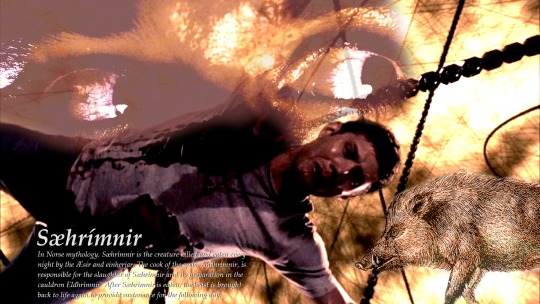
"They sliced and carved and tore at me in ways that you... Until there was nothing left. And then, suddenly... I would be whole again... like magic... just so they could start in all over. And Alastair... at the end of every day... every one... he would come over. And he would make me an offer. To take me off the rack... if I put souls on... if I started the torturing."
In which Dean is Sæhrímnir, the boar brought back for slaughter, every day, and Alastair is the butcher Andhrímnir.
#all i could think about during his speech was this parallel#a very obscure reference maybe but i gotta uphold my reputation as a norse mythology scholar on this site so here you go#i don't really make a lot of edits but this was pretty fun so maybe i should start!!#spn#supernatural#dean winchester#jensen ackles#hell#alastair#analysis#spn edit#spn fanart#season 4#4x10#3x16#norse mythology#saerimnir#särimner#4x01#lazarus rising#heaven and hell#no rest for the wicked#season 3#Andhrímnir#Sæhrímnir
24 notes
·
View notes
Text
The Void
Cw for Body Horror and Bright colors
I wanted to draw Kol again and more of her scary eldritch eye
But then I ended up making a reference to The Bifrost Incident as well XD
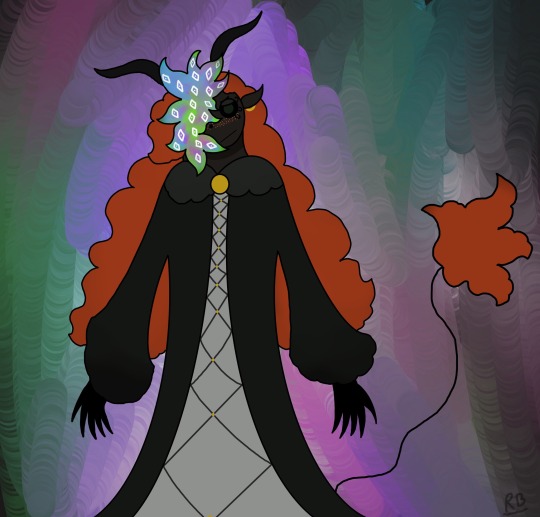
#norse mythology#Gullveig’s heart#loki#loki’s kids#The bifrost incident reference#The mechanisms reference#norse mythology art#digital art#art#artist on tumblr#digital artist#character design#cw body horror#cw bright colors
10 notes
·
View notes
Text
me reading Magnus Chase is just me seeing something that's also a thing in skyrim and going "thane? im a thane of whiterun!"
#local nerd realizes that skyrim has more references to norse mythology/culture than he thought#magnus chase#mcga#magnus chase and the gods of asgard#skyrim#elder scrolls#milo scribbles
8 notes
·
View notes
Text
LOKI SEASON 2 FINALE SPOILERS
.
.
.
.
loki making the timelines into Yggdrasill (the world tree in norse mythology) is probably one of the coolest things i've ever seen
#i saw it and i was like “OH MY GOD I KNOW WHAT THAT IS”#love me a good old norse mythology reference#loki#loki season 2#loki season two#loki series#loki laufeyson#loki odinson#s2 ep6#s2 ep6 glorious purpose#marvel#loki marvel#norse mythology#norse gods
45 notes
·
View notes
Text
*manifests into existence graphically & gruesomely* *walks over to mic* Pokémon A.U ideas I’ve had buzzing around in my brain for a bit (that I will also explain rlly poorly) haha cough dies:
-Sycamore & Diantha are funni siblings, Xerneas is their smooshy grandmother, real world mythology (specifically Norse) exists, Yveltal does not like Lysandre or his ancestors (…also Fae & similar forces exist & are hungry :))
-Rainbow Rocket keeps getting its arse beat by (some not so anymore) trauma fuelled children, Sycamore, R.S.E! Maxie & Colress are friends (and really should not of been God Save Us), the Ultrabeasts share one braincell (and Guzzlord ate it)
-the world is an unknowable horror filled with nothing but pain and suffering, forcing those who dare to think themselves above it and the power it holds to choke on their hearts, their voices, their thoughts, until all they can perceive is that nothing is for them and all shall be as it is, cursed and shattered because of arrogance and ignorance, tortured and twisted, swallowed up by the light and the fire that should not of been.. And oh how You should of Known, oh how You all should of Thought better than That and now you are Here and there will be no escape from The Voið øF Wħő Ý ò ų ÆŘß —- (AKA Cyrus calls an ambulance, the others eat shit, Lysandre gets scammed by love & Xerneas is a amazing mum AND baker 🥰)
-live family reunion
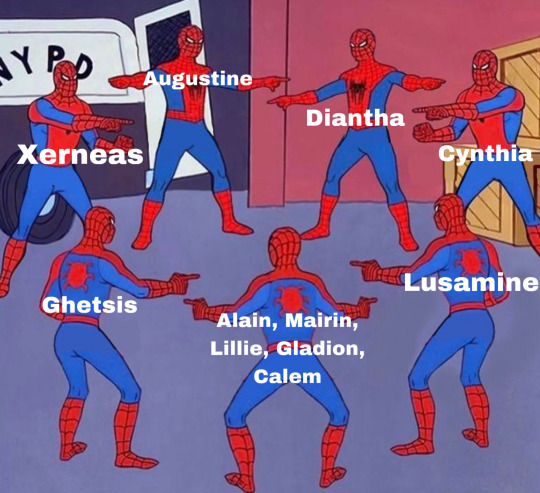
-“how to care for your now deceased lover’s (Xerneas.net) children and also teach them how to control their powers because they are the heirs of Nature plus how do you teach creatures with Natures Abilities how to control them when you yourself are technically Death incarnate (Yveltal.net)” (AKA Yveltal get’s reading glasses, Zygarde is very happy to be an uncle (figure only. -Yveltal) & Augustine n Diantha luv their dad :3)
-there are three (read many) different variants of Sirens, Maxie & Maxie won’t stop arguing, the Pirate Life was (not) for Lysandre, only in Ancient Greecetm
-three very important rule:
Be very careful what you wish for,,,
Don’t finger fuck reality.
Never ever let a group of villain’s children play a metaphorical-game-of-Russian-Roulette-as-a-represention-of-their-descent-into-and-inability-to-escape-the-life-their-arsehole-parents-somewhat-accidentally-pushed-them-into-and-then-building-off-of-it-to-create-something-objectively-more-dangerous.
-Augustine go’s to Hoenn for rocks, accidentally gains two husbands, freaks out to Diantha on the phone Malva chuckles as she watches from her comfortable spot on Dian’s’ bed. Her girlfriend makes such funny expressions when exasperated >03
-typical fantasy adventure turned sideways then promptly trampled. Augustine HATES the ‘damsel in distress’ trope, Lysandre just wanted to court normally, Cyrus is forced to third wheel everyone & Diantha is all here for the chaos 👍
-“Cynthia! This is suppose to be a celebration! Where is everyone?????” “Alder is in a coma, Sycamore is being held captive by Legendaries or something, Rainbow Rocket has gone cuckoo & Kanto (& soon the rest of the Southeast Continent) is basically fucked.” “😨” “anymore questions smartass?”
-the Ultrabeasts adopt Lillie + evolved, kinda not human anymore Lillie
-Eggman’s announcement but it’s Arceus (+ Cyrus w/ the Space Police (Ultra Recon Squad or whatever their called)
haha I’m gonna blow up one day :DDDDD
#bullshit to keep me going ♾️✨#shitpost#pokemon#pokeani#augustine sycamore#champion diantha#champion cynthia#lysandre#rainbow rocket#lol their mentioned a lot#xerneas#yveltal#zygarde#pokemon xy#pokemon au#fic ideas#Mythology references#norse mythology#it’s referenced at least#mythology and folklore#legendary pokemon#maxie pokemon#colress#Reincarnation#mythical creatures#eldrich horror#trope subversion#IG??????#godly parent#magic and mayhem
6 notes
·
View notes
Text
i need to draw heimdallr and sheep more
#fish.txt#i am also never not thinking about how his physical descriptions describe him almost ram like#golden teeth . the whitest of gods possibly referring to him being very blonde#hallinskiði possibly referring to him having horns#I AM NEVER NOT THINKING ABOUT SHEEP HEIMDALLD !!#OUGH OUGHHHG heimdallrlellelee#norse mythology tag
4 notes
·
View notes
Note
would you win in a fight against 8 crows
I would defeat them all, but then take 9 steps before dropping dead
3 notes
·
View notes
Note
Wishing u much good food and killing michael buble with ur teeth 🫡
May I request arranged marriage for the ask game 👀👀
hello lee :3 i shall provide. this is, quite unashamedly, inspired by your thoughts on king!lucifer (with some of my own spin on things, lol) I really hope you like it.
Sam isn’t given the dignity of a proper marriage. The agreement is in writing before he’s ever even seen his new husband’s face, and after that, he’s carted up north like a prize of war. His retinue of king’s men from the south dwindles the more miles they travel. He’s sure some of that is planned, a man or two to travel so far and then hand him off to northern soldiers, a few more who agreed to go further and turn back, but more than a few times, Sam is sure they’re just deserters, terrified of what will happen to them outside the safety of the south. The wind blows frigid over the growing hills, and the north speaks a different, hostile tongue. Sam hates every single one of the soldiers who leaves, not for abandoning him, because they were never here for his protection, but for escaping when he can’t.
It’s easy to tell the difference simply by how they’re dressed, and by the time Sam is left with only northern soldiers, he sticks out like a flower in the snow on one of these barren fields. The men around him dress in thick furs, garb so heavy that it obscures their entire figure and the weapons beneath their cloaks but never slows them down. Sam is left with his thinner summer wardrobe and the absent gift of a blanket at night to keep him from freezing to death.
The king of Hel will be crueler, Sam tells himself, and he will have to survive that. He wishes he spoke their language. The one benefit of being a hostage in the south was that he understood how he was being humiliated. Though, as he shivers in the carriage he’s locked up in, his muscles aching from the cramped space, he probably wouldn’t need that many tries to guess.
They’re only stopped once. A very bold messenger catches up to them on horseback and demands Sam’s hasty return. Not out of mercy, Sam learns as he keeps close to the door of the carriage and eavesdrops, but necessity. Sam exhales in relief as the messenger grits out that Dean Winchester, the first son of their late father, has gone missing before he could marry the True King.
Sam huffs a laugh at how little weight that title carries now that they’re within Hel’s lands. The messenger must feel it, too.
The soldiers tell him, in no uncertain turns, to turn around and go back to his king empty-handed, or else go back with no hands at all. The deal, they say, was done, and the king of Hel does not renege on deals.
Sam is taken further north with only the hope that his brother is alive and safe and free to keep him warm.
The king doesn’t meet Sam at the gates or in the hall or even in his own bedroom, after Sam is ungracefully herded in there. Not by the soldiers who brought him. Very few of them even entered the walls of the castle and even fewer accompanied him into the keep. No, Sam’s guard from then on was minuscule, only a pair of women. He might have taken them for maids if not for the flashes of steel he caught as they walked beside him and the dangerous looks in their eyes. (Neither of them feel safe, but he keeps his eyes on the red-haired one more than the dark-haired one. When she smiles, Sam keeps expecting to see a wolf’s fangs beneath her lips.)
It’s the dark-haired one who tells him what to do. She isn’t very subtle. “Wait on your back for the king to come fuck you. When he’s not busy with anything more important.” The red-haired one laughs, bright and cruel like fire, and she shuts the door behind Sam once he’s inside. He waits, holding his breath, to hear their footsteps. They shuffle briefly, but they don’t move away from the door.
Sam does not wait for him on the bed. Surely a king has to keep some kind of weapon in his own chambers. Sam searches every nook and cranny, lowering his standards from a real weapon to anything remotely sharp enough to do damage. If Dean escaped, then Sam at least has to try.
The solid stone walls don’t do as much to keep the cold out as he would like. Sam’s fingers are tingling with numbness when he finally closes them around the only appropriate thing he can find: a letter-opener, sharpened crisply. It isn’t as fancy as he’s expecting. It seems more fitted for use than for decoration, no encrusted jewels or intricate flourishes on the blade. Nothing but a snake engraved into the handle. Sam keeps it tucked close.
He waits.
And waits.
And waits.
The sun is below the horizon by the time he hears a new pair of footsteps outside. A new voice, speaking too soft for Sam to understand, even if he knew his language. The door drags open.
Sam lays his eyes on his husband for the first time.
For a few seconds, in a delusion born from how freezing cold Sam is and how scared he feels, he thinks the king might be some sort of monster. The face of a bear stares him down. Sam’s frozen under its dead glare until he realizes its only another layer of clothing. Sam looks down as the king divests himself of his bear’s hood. He rubs his jaw, a few days of stubble to match the dark circles under his eyes.
Sam tightens his grip on his letter-opener, feeling naked in comparison to the king.
The first thing the man says is, “Why aren’t you asleep?” The woman who spoke to Sam earlier had a thicker accent than him, as did the soldiers. Sam can still hear it clearly, but his pronunciation is much clearer than theirs. Sam doesn’t answer, and the king’s eyes drift up and down his body. Even more confused, he asks, “Why aren’t you dressed?”
“I am,” Sam says, though he doesn’t feel it. “Your highness,” he forces himself to add. The king takes a single step towards him before stopping, eyeing Sam as he tenses up. The king says something in his own language, but Sam can recognize the sound of a curse in any. Sam watches the king remove his cloak. The king of Hel is broad-shouldered, thick-bellied, and without his cloak, he doesn’t look any smaller.
“How about a trade?” he says. “Wear this. It’s as warm as it looks”—Sam shivers.—“and in return, you hand over that blade you’re hiding.”
Sam feels his heart stop. His breath catches. The king tilts his head, but there’s no anger in his eyes. There’s… He looks sad, as though he understands why Sam needs the letter-opener to feel safe.
“Please, Sam,” he says, and Sam can’t be comfortable with how easily the king says Sam’s name when Sam doesn’t even know his. He offers the cloak, and he waits.
Sam shivers again, worse than before. It’s been a fight to not crawl under the blankets in that comfortable looking bed, but the cloak is an impossible temptation to resist. He can’t be thinking straight with how cold he is. He reaches for it. It’s heavier than he’s expecting. The king sees him struggling to take it with one hand and moves, bringing the cloak around Sam’s shoulders. There’s body heat cradled beneath the pelt, and it sinks into Sam’s skin.
The king is standing there, without armor, within reach of Sam’s small blade. He adjusts the cloak silently around Sam’s shoulders.
Sam doesn’t strike.
The king touches Sam’s wrist. He gently takes the letter-opener out of Sam’s hand. The way his palms, more callused than most lords Sam’s ever known, cradle his hand lingers in Sam’s mind long after the king has finally let go. The king turns the letter-opener over, running his thumb along the snake like he’s reminiscing about something. He shuts his eyes, grimaces, and lays the letter-opener back on the small table Sam had found it. There’s nothing stopping Sam from snatching it up again when the king turns his back.
He eyes it, but his gaze soon goes back to the king as he kneels beside the dark fireplace. He sweeps the ashes aside, getting his clothes dirty. He hauls another log into the hearth. He starts the fire himself, holding his hand above the flames as they grow and threaten to lick his skin before he stands. The room seems less like a jail cell when it’s more lit up.
The king gestures at the fire and tells Sam, “Wait here,” as if Sam could leave if he wanted to. He leaves Sam wrapped in his cloak and warming his extremities by the fire, arguing back and forth with himself about picking the letter-opener back up.
When the king returns, he brings food with him, steaming fresh. He hands a bowl of stew to Sam. Sam’s mouth immediately starts watering. He hasn’t had anything close to a good meal in nearly a month, granted only the same rations as the soldiers who were leading him here. There’s fresh meat in the broth before him bobbing between vegetables. Sam spears a chopped potato on the end of a fork and hurries to swallow it.
“I’m not going to take it away from you,” the king says, as though he can read Sam’s thoughts.
“Why are you feeding me?” Sam asks between spoonfuls, not completely trusting that this food isn’t a luxury he’ll lose if he says the wrong thing. The king joins him by the fire. Sam noticed the way he kneeled earlier, stiffly, and he wonders if that’s exhaustion alone making him move slower or the twinges of an old injury. He sits and relaxes.
“You’re hungry,” he answers, “you’re cold,”—He glances down at Sam’s stomach.—“and you’re skinny. I’m killing three birds with a single stone.”
“Skinny?” Sam scoffs. It’s not how he’d describe himself.
“You have muscle,” the king says, an amused tone entering his voice. “Muscle’s good, makes you warm, but fat will keep you that way.”
“And I thought you were a man, not a bear,” Sam says. It’s… strange to hear the king chuckle, to know that he’s the reason why. Sam puts another spoonful in his mouth and chews some tender meat. It’s delicious. He’d thought food up here would be tough and flavorless, but it’s rich and savory instead.
“I learn from what I hunt,” the king says. “Sam-“ He pauses. Sam is busy drinking the broth, and he’s caught off-guard when the king says, “You don’t know my name.” It’s like some sort of revelation to him, and Sam just frowns. He wasn’t special. No one knew the name of the king of Hel. “You’ll have to forgive me, Sam. I made certain… choices during the beginning of my reign. I created an image I still have to uphold, even though it has long outlived its usefulness.” The king sighs. “My name is Lucifer.”
He says it like it’s supposed to mean anything to Sam. It doesn’t. He watches Sam’s expression, and his brow furrows.
“What is it?” Sam asks.
“It was Michael’s seal on our marriage, and if he’s still alive, I thought-” Whatever it is troubles him so badly that he falls silent, leaving Sam to have to fill in the gaps himself.
“You know him?” For Sam knows him well. He’s not half as kind (if Lucifer is kind, if this is not all an act) as the king of Hel.
“As children,” Lucifer says, his voice soft, “but I doubt he’d know me now.”
“You were born in the south,” Sam deduces, and Lucifer nods.
“That letter-opener has already tasted blood, Sam,” he says. He doesn’t carry a hint of Sam’s home in him anymore, if he had once. He looks exactly like what a king of the frozen fields should.
“Do I have to use it?” Sam grips the spoon hard between his fingers. His voice goes flat. “Are you going to force me-”
“No,” Lucifer cuts through his words with sharp finality. “No.”
“If you don’t consummate-” Lucifer leans back on one hand, exhaling in frustration.
“And what will they look for? You can sleep in tomorrow to pretend you’re recovering, no one is outside the door listening for your screams, and if they want blood-” Lucifer stands. Sam watches him take up the letter-opener himself and spread flat one of the furs on top of the others on the bed. He cuts his own hand and smears it down the fur. He removes it from the bed afterwards, laying it across the windowsill where Sam can see Lucifer’s blood drying on it. “There. It’s done. You are mine.” He turns to look at Sam, and his voice softens out of the frustration he’d been holding onto. “And I am yours.”
Sam doesn’t know what to say. Lucifer’s shoulders sag as he yawns.
“I’m going to bed,” he tells Sam, “and you’re safe to join me whenever you want. The bed is large, and I won’t touch you.”
More than anything, Sam wants to ask why Lucifer agreed to this at all if he doesn’t even want Sam. It’s not as though Sam can give him heirs, or, it seems, like Lucifer even wants to make them.
He averts his gaze as Lucifer undresses further. (Or tries to. His eyes keep flicking back to catch Lucifer rolling his shoulders beneath his thick white underclothes or pushing his shirt up to scratch his nails through the thick trail of hair beneath his belly button.) He focuses on finishing his meal, and when he’s done, his stomach is filled with hot stew and the rest of his body, still draped in Lucifer’s cloak, hasn’t felt cold at all since Lucifer started the fire.
One last time as Sam passes it, he looks at the letter-opener, now covered with Lucifer’s blood.
He leaves it. Lucifer is snoring steadily from his side of the bed, the covers rising and falling with his breath. Sam removes his cloak carefully, and unsure of where to put it, folds it and lays it across a chair. The bear’s head doesn’t seem to be growling at him anymore.
Sam slides under the bedcovers. He sucks in a breath. He’s never been more comfortable in his life. The weight of the furs presses him down into the mattress, but they’re all soft to the touch. He stretches his body down the bed, covered chest to toes. The pillow beneath his head is firm but pliable, giving way to a comfortable shape. He turns to look at Lucifer.
Lucifer frowns in his sleep. His cheek is wet, and Sam feels the urge to reach out and wipe it dry. It rises, he resists, and it fades again. Sam turns over. He shuts his eyes and sleeps better than he has in years.
#this was supposed. to be. like 300 words.#me dropping an L from hell: hee hee norse mythology reference :3 im so clever#ask#prompt fic#fanfiction#samifer#lucifer spn#sam winchester#also it's not mentioned here but OBVIOUSLY lucifer is trans.#important part of this au actually. in the background of this fic. but important also to me.#spn
12 notes
·
View notes
Text
A fantasy read-list: A-2
Fantasy read-list
Part A: Ancient fantasy
2) Mythological fantasy (other mythologies)
Beyond the Greco-Roman mythology, which remained the main source and main influence over European literature for millenia, two other main groups of myths had a huge influence over the later “fantasy” genres.
# On one side, the mythology of Northern Europe (Nordic/Scandinavian, Germanic, but also other ones such as Finnish). When it comes to Norse mythology, two works are the first names that pop-up: the Eddas. Compilations of old legends and mythical poems, they form the main sources of Norse myths. The oldest of the two is the Poetic Edda, or Elder Edda, an ancient compilation of Norse myths and legends in verse. The second Edda is the Prose Edda, so called because it was written in prose by the Icelandic scholar Snorri Sturluson (alternate names being Snorri’s Edda or the Younger Edda). Sorri Sturluson also wrote numerous other works of great importance, such as Heimskringla (a historical saga depicting the dynasties of Norse kings, starting with tales intermingled with Norse mythology, before growing increasingly “historically-accurate”) or the Ynglinga saga - some also attributed to him the Egil’s Saga.
Other “tales of the North” include, of course, Beowulf, one of the oldest English poems of history, and the most famous version of the old Germanic legend of the hero Beowulf ; the Germanic Völsunga saga and Nibelungenlied ; as well as the Kalevala - which is a bit late, I’ll admit, it was compiled in the 19th century, so it is from a very different time than the other works listed here, but it is the most complete and influential attempt at recreating the old Finnish mythology.
# On the other side, the Celtic mythologies. The two most famous are, of course, the Welsh and the Irish mythologies (the third main branch of Celtic religion, the Gaul mythology, was not recorded in texts).
For Welsh mythology, there is one work to go: the Mabinogion. It is one of the most complete collections of Welsh folktales and legends, and the earliest surviving Welsh prose stories - though a late record feeling the influence of Christianization over the late. It is also one of the earliest appearances of the figure of King Arthur, making it part of the “Matter of Britain”, we’ll talk about later.
For Irish mythology, we have much, MUCH more texts, but hopefully they were already sorted in “series” forming the various “cycles” of Irish mythologies. In order we have: The Mythological Cycle, or Cycle of the Gods. The Book of Invasions, the Battle of Moytura, the Children of Lir and the Wooing of Etain. The Ulster Cycle, mostly told through the epic The Cattle-Raid of Cooley. The Fianna Cycle, or Fenian Cycle, whose most important work would be Tales of the Elders of Ireland. And finally the Kings’ Cycle, with the famous trilogy of The Madness of Suibhne, The Feast of Dun na nGed, and The Battle of Mag Rath.
Another famous Irish tale not part of these old mythological cycles, but still defining the early/medieval Irish literature is The Voyage of Bran.
# While the trio of Greco-Roman, Nordic (Norse/Germanic) and Celtic mythologies were the most influential over the “fantasy literature” as a we know it today, other mythologies should be talked about - due to them either having temporary influences over the history of “supernatural literature” (such as through specific “fashions”), having smaller influences over fantasy works, or being used today to renew the fantasy genre.
The Vedas form the oldest religious texts of Hinduism, and the oldest texts of Sanskrit literature. They are the four sacred books of the early Hinduist religion: the Rigveda, the Yajurveda, the Samaveda and the Atharvaveda. What is very interesting is that the Vedas are tied to what is called the “Vedic Hinduism”, an ancient, old form of Hinduism, which was centered around a pantheon of deities not too dissimilar to the pantheons of the Greeks, Norse or Celts - the Vedas reflect the form of Hinduist religion and mythology that was still close to its “Indo-European” mythology roots, a “cousin religion” to those of European Antiquity. Afterward, there was a big change in Hinduism, leading to the rise of a new form of the religion (usually called Puranic if my memory serves me well), this time focused on the famous trinity of deities we know today: Brahma, Vishnu and Shiva.
The classic epics and supernatural novels of China have been a source of inspiration for more Asian-influenced fantasy genres. Heavily influenced and shaped by the various mythologies and religions co-existing in China, they include: the Epic of Darkness, the Investiture of the Gods, Strange Tales from a Chinese Studio, or What the Master does not Speak of - as well as the most famous of them all, THE great epic of China, Journey to the West. If you want less fictionized, more ancient sources, of course the “Five Classics” of Confucianism should be talked about: Classic of Poetry, Book of Documents, Book of Rites, Book of Changes, as well as Spring and Autumn Annals (though the Classic of Poetry and Book of Documents would be the more interesting one, as they contain more mythological texts and subtones - the Book of Changes is about a divination system, the Book of Rites about religious rites and courtly customs, and the Annals is a historical record). And, of course, let’s not forget to mention the “Four Great Folktales” of China: the Legend of the White Snake, the Butterfly Lovers, the Cowherd and the Weaver Girl, as well as Lady Meng Jiang.
# As for Japanese mythology, there are three main sources of information that form the main corpus of legends and stories of Japan. The Kojiki (Record of Ancient Matters), a chronicle in which numerous myths, legends and folktales are collected, and which is considered the oldest literary work of Japan ; the Nihon Shoki, which is one of the oldest chronicles of the history of Japan, and thus a mostly historical document, but which begins with the Japanese creation myths and several Japanese legends found or modified from the Kojiki ; and finally the Fudoki, which are a series of reports of the 8th century that collected the various oral traditions and local legends of each of the Japanese provinces.
# The Mesopotamian mythologies are another group not to be ignored, as they form the oldest piece of literature of history! The legends of Sumer, Akkadia and Babylon can be summed up in a handful of epics and sacred texts - the first of all epics!. You have the three “rival” creation myths: the Atra-Hasis epic for the Akkadians, the Eridu Genesis for the Sumerians and the Enuma Elish story for the Babylonians. And to these three creation myths you should had the two hero-epics of Mesopotamian literature: on one side the story of Adapa and the South Wind, on the other the one and only, most famous of all tales, the Epic of Gilgamesh.
# And of course, this read-list must include... The Bible. Beyond the numerous mythologies of Antiquity with their polytheistic pantheons and complex set of legends, there is one book that is at the root of the European imagination and has influenced so deeply European culture it is intertwined with it... The Bible. European literary works are imbued with Judeo-Christianity, and as such fantasy works are also deeply reflective of Judeo-Christian themes, legends, motifs and characters. So you have on one side the Ancient Testament, the part of the Bible that the Christians have in common with the Jews (though in Judaism the Ancient Testament is called the “Torah”) - the most famous and influential parts of the Ancient Testament/Torah being the first two books, Genesis (the creation myth) and Exodus (the legend of Moses). And on the other side you have the exclusively Christian part of the Bible, the New Testament - with its two most influential parts being the Gospels (the four canonical records of the life of Jesus, the Christ) and The Book of Revelation (the one people tend to know by its flashier name... The Apocalypse).
#read-list#fantasy#fantasy read-list#mythology#mythologies#celtic mythology#norse mythology#japanese mythology#chinese mythology#mesopotamian mythology#books#references#book references#sources
43 notes
·
View notes
Text
Touch Me Once, My Sweet Death
(Goddess of Life Canute x God of Death Thorfinn)
Among the edges of Vahalla lie two domains that lie just out of reach of all nine realms. The realm of that which makes life and the realm of that which allows death. Both realms are infinitely close to intertwining with each other, yet they are fated to never do so. Life may never touch death, lest life rot, and death may never touch life, lest death become obsolete.
The celestial growth of all life is a haven that sprouts up new flora everywhere that life walks. An eternal, shining light cascading down onto the peaceful realm that warms all life It's vibrant and lively, in a way that cannot be described to mortals. It is unreachable to anyone, but life—not even death—may touch the surface of these sacred lands.
Crystalline lakes run through the valleys that grant anyone who bathes in them eternal youth. Life is eternal here, yet it slips away so quickly from mortals. The fauna here is plentiful, and they spend their days grazing on the thriving flora. There is no darkness here, no night, and there is no need to rest or sleep as life is always alive.
On the opposite of the nine realms lies what has been corrupted and corroded. Eternal darkness and damnation flow through rivers of eternal crimson blood. There is neither ground nor any flora or fauna. All that lies in the realm beyond life and all is an all-encompassing darkness. A long trail of blood and tortured souls sorrowfully weeped the cries of the afflicted. The stench of rot and the vile of mankind permeate throughout the void.
There is neither breath nor air, yet somehow the sounds of the damned and the screeches of the night terrors echo across. This is the place of the god's fear—where they will end when Ragnarök comes. No one in Vahalla speaks of the void or how its power grows every passing day. No one has truly ever seen death except life; for a fleeting moment, a connection was formed. For when life and death intertwine, everything will end, and Ragnarök shall have begun.
There's a gap between the realms of life and death in Muspelheim. A land of fire and destruction that will help fill the void during the last days of the gods The God of Death, Thorfinn, spends most of his time there. He walks right to the edge, right where Muspelheim ends and the scared lands of life begin. He never reaches out—well, he almost did once—and he regrets it dearly.
He yearns for Ragnarök; he yearns for life; he knows that there is no higher power than him, yet he still wishes that he wasn't Death. He remembers the time of the old gods. When he and life were intertwined. He promised Canute that he would never leave, and yet now they are separated by an eternal blazing fire. Their union will kill all and cause all to fall, and all Thorfinn is able to do is wait and yearn.
The Goddess of Life, his goddess, his love, shows at the end of his sacred lands. He adorns a simple silken white dress, although his aura appears more holy than any other divine being. His cascading blonde locks sparkle like the crystalline waters of youth that he bathes in. His eyes were created out of the same hue as the sky; they are endless and freeing. They never fail to take Thorfinn's breath away. He needs neither a crown nor intricate runic symbols. He is God. He is free. He is true and ultimately divine beauty.
Death, in that moment, wishes to hide away. His body is scarred with runic symbols of terror and destruction. His blonde locks are matted with the souls of the innocent and as dry as the heat of the crackling inferno in which he stands. Surtr makes no move against death; even he is in awe and reverence for the being that occupies his lands so often. Still, all Thorfinn is able to focus on is the black garb that hangs limply off of him. No better than the clothes a mortal slave would wear. A tattered tunic filled with holes and scorch marks, matching trousers that cover his feet. He wears only black combat boots, a gift from a damned soul.
He is unable to compare himself to how pristine and angelic Canute appears. Even his bare feet look as if they were sculpted by a force greater than either of them. He wears no clothing below his ankles, as life is always connected to the earth around him. His goddess, his life, his yearning—and he is only... no better appearing than one of the Jötunn.
Canute knows that he is not allowed to take another step forward, so he falls on his knees. Life's sky blue eyes grow duller for a moment as all of the flora around him slowly wilts. "Touch me once, my sweet Death. I beg of you. I have been deprived of your love for so long."
"Torture me not, my love." Thorfinn croaks out with a tortured vocal inflection as he falls to his knees. His body is consumed by the hellish inferno, and yet he still feels nothing—he is eternal. He is part of Ragnarök; he will cause the end of Canute. He may never touch him, lest he kill him. "I need you. When shall I love you again?"
"You have never stopped loving me. Touch me, please, my sweet Death." Canute begs with his harmonious cords as his hand so foolishly reaches out towards Thorfinn.
So tempting.
One inch away and his love shall embrace him.
"Thorfinn, please, I may die without you."
"You will die with me." Thorfinn shrieks the pain of his for once instead of being afflicted, even if it doesn't feel so. He doesn't want to be dead. He doesn't want to be immortal. He wants to be human. He wants to be human. He wants...
"Keep me close, my sweet Death." Canute speaks in the desperation of a mortal, begging for their life from their superior. Canute closes the gap and he embraces him after many millennia.
Death weeps, for life now rots in his arms. Canute keeps himself imprinted on Thorfinn. Life allows itself to play into Death's hands. He screams, he shouts, he shakes Canute, and he curses. Canute rots. His vibrancy is quickly fading, as life does in all nine realms.
"Stay strong, my sweet Death."
#vinland saga#gay#viking gays#canfinn#canute x thorfinn#thorfinn x canute#thorunte#references to Norse mythology#oneshot#vinland saga fanfic#not happy about it#didn't turn out like I wanted it to#enjoy it
11 notes
·
View notes
Text
see someone spreading misinformation about ancient greece online, gently correct them, they say "well discerning whats canon and whats fanon in greek mythology is really difficult". i am killed instantly.
#my brother in christ contemporary texts are free online <3#sometimes by multiple different translators#trying to correct people who believe that in the '''''original myth'''''' persephone just walked to the underworld of her own accord is hel#fyi i was saying hell on earth and ran out of letters#i was not trying to be quirky and reference a completely separate culture's myths i prommy#if i ever use 'hel' in like a casual context instead of when specifically talking about norse mythology i need to be put down#greek mythology#i speak#reminds me of that post that claimed that gorgon heads were used to mark womens shelters in ancient greece w/ no source#and everyone believed it#as if gorgon heads weren't on basically every building#(being hyperbolic obv but. basically)#like i don't get this modern urge to give power and agency to women in mythology by either#(a) pretending nothing bad ever happened to them and everything was of their own volition (bad. stop it.)#or (b) pretending that they have uniquely bad stuff happen to them and no one else had bad stuff happen to them and its only this lady#so therefore everyone else involved is evil (also bad. also stop it.)#like when one of those modern 'feminist retelling' greek myth stories w/ the same covers about ariadne#it actively adds bad stuff to happen to ariadne when shes a mortal woman in greco roman myth who actually gets a happy ending#like whats the point of that??
12 notes
·
View notes
Text
El Tango De Roxanne, for some reason to me gives off strong Sigyn/Logyn vibes
The lyrics:
"Why does my heart cry?
Feelings I can't fight
Your free to leave me but
Just don't deceive me
And believe me when I say
I love you "
Feel as if that, despite Sigyn's willingness to let Loki go if she ever had to. She doesn't want to feel deceived by their relationship because, in the end, she does truly love Loki.
It could also be that they give me Satine/Christian vibes, too
But Sigyn is Christian, and Loki is Satine
Technically, in both relationships, one of them dies at the end, too, so bonus points for that 🥲👍
#norse mythology#sigyn#logyn#loki x sigyn#sigyn x loki#angst#doomed yuri#Sigyn gives me hopelessly in love romantic vibes sometimes#moulin rouge reference
3 notes
·
View notes